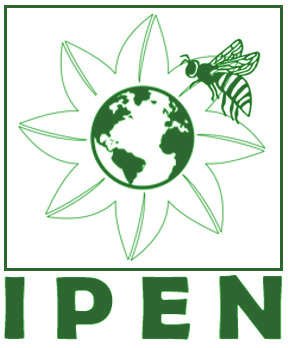iLAND Criteria: The purpose of the iLAND Criteria is to help projects to understand and implement best practice in permaculture demonstration and education. They are designed to guide decision-making for projects so that they can work towards creating an excellent centre.
The initial assessment mechanism is based on providing remote support, so that centres can develop in areas where experienced advice is not easily available in that region or country. The initial set of Essential Criteria and Desirable Criteria learn from the experience of existing LAND projects and are as set out below.
For new and developing Centres each Criteria can be seen as an Objective for your project to achieve. To work toward becoming an Established iLAND Centre you need to provide evidence to:
- demonstrate that all or most of the 10 Essential Criteria are already achieved, or will be achieved in the foreseeable future
- meet or work towards the 4 Desirable Criteria.
For Emerging iLAND Centres to join the iLAND Network you need to make a commitment to achieve the 10 Essential Criteria with an agreement with IPEN about the form of evidence you will provide for each Criteria to demonstrate it has been achieved.
ESSENTIAL CRITERIA:
EDUCATION, LEARNING & DEMONSTRATION CRITERIA:
- Demonstration goal: to demonstrate local sustainable food growing and permaculture in action on site, with appropriate signage and information available to aid understanding.
- Learning goal: to have a programme of permaculture training and events, including involvement in local-regional permaculture tutor training and a system of quality assurance for PDCs.
- Resources goal: to have educational & training resources available for visitors, and be committed to helping develop and improve existing and new education resources, including in the most relevant language(s) for your region
DESIGN CRITERIA:
4. Design Plan goal: to have a permaculture design plan for your site (land design) and project (e.g. education systems or economic systems design) that you are committed to implementing which clearly incorporates permaculture ethics, principles and methods, with the design on display.
5. PDC Experience goal: to have at least one project member who has completed a Permaculture Design Course (PDC).
CRITERIA FOR WORKING WITH VISITORS, VOLUNTEERS & COMMUNITY:
6. Volunteers & Visitors goal: to be able to receive volunteers and visitors.
7. Sustainable Food Networks goal: to have strong connections with sustainable food networks, locally or across your region / country.
8. Health & Safety goal: to have appropriate health & safety procedures and risk assessments in place, as necessary.
iLAND NETWORK CRITERIA:
9. Network Sharing goal: to share skills and relevant information with other projects in the iLAND network, including via the iLAND webpages within the website of IPEN.
10. Monitoring & Evaluation goal: to contribute to iLAND project monitoring and evaluation and work with IPEN to help achieve more of our shared target outcomes.
DESIRABLE CRITERIA:
ORGANISATION CRITERIA:
11. Organisation goal: to be well organised with the aim of continuing to develop your management, communication and education skills.
12. LAND Centre Systems goal: to contribute to establishing or developing a national (or regional) LAND centre system hosted by an appropriate national permaculture organisation or network, or a collaborating networks in your global region.
MONITORING AND RESEARCH CRITERIA:
13. Research goal: to have a programme of monitoring or research. This might include: visitor and training numbers; outcomes of education activities; ongoing records of planting and yields; records of other activities e.g. relating to water, sanitation, health; systematic photographic recording of the site; other research activities.
SKILL SHARING CRITERIA:
14. Skill Sharing goal: to host or help generate national or regional skill sharing and training events.
These 10 Essential and 4 Desirable criteria have been adapted from the successful UK LAND project’s criteria, so we thank UK LAND for being an inspiring example and the lessons learnt so far, including the emergence of ScotLAND, who we are also grateful to for helping us to define a streamlined application process suited to countries with less experience tutors and designers.
The criteria have been adjusted for iLAND because in many situations around the world learning and demonstration centres will be very pioneering projects, with much less support and maturity in their national permaculture education systems than Britain, and therefore will not have access to a network of experienced LAND Advisers to visit their project.
iLAND Assessment: To develop a system of quality assurance and validation, we foresee a Peer-to-Peer iLAND Assessment system as a good way to start. This will need to establish ways to address the range of issues and challenges that are likely to emerge in considering how to assess pioneering demonstration projects. IPEN sees this Validation system as being of great value in some situations (e.g. for: local government recognition; funding raising; attracting course participants and volunteers; partnering with educational institutions; etc). However, it may be irrelevant for some projects.
If you wants to participate in the iLAND Network, then the starting point for this system is to complete our Phase 1 iLAND Application system



Leave a Reply